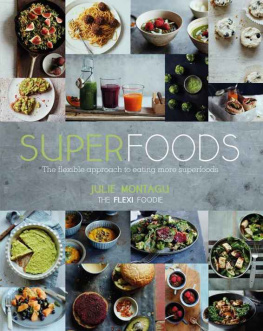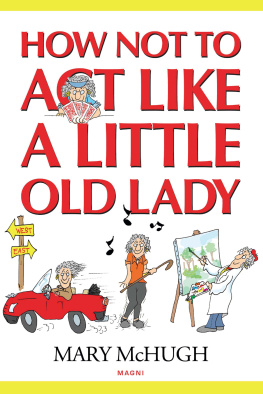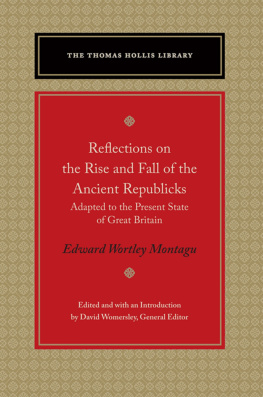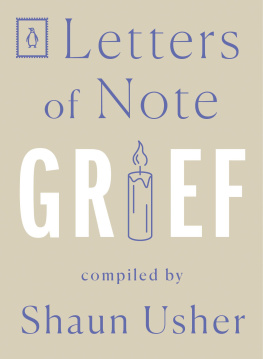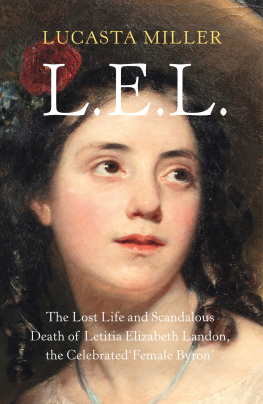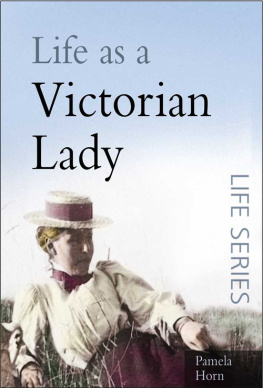Montagu - Life on the Golden Horn
Here you can read online Montagu - Life on the Golden Horn full text of the book (entire story) in english for free. Download pdf and epub, get meaning, cover and reviews about this ebook. City: London;Turkey, year: 2007;2010, publisher: Penguin Books Ltd, genre: Art. Description of the work, (preface) as well as reviews are available. Best literature library LitArk.com created for fans of good reading and offers a wide selection of genres:
Romance novel
Science fiction
Adventure
Detective
Science
History
Home and family
Prose
Art
Politics
Computer
Non-fiction
Religion
Business
Children
Humor
Choose a favorite category and find really read worthwhile books. Enjoy immersion in the world of imagination, feel the emotions of the characters or learn something new for yourself, make an fascinating discovery.

- Book:Life on the Golden Horn
- Author:
- Publisher:Penguin Books Ltd
- Genre:
- Year:2007;2010
- City:London;Turkey
- Rating:4 / 5
- Favourites:Add to favourites
- Your mark:
- 80
- 1
- 2
- 3
- 4
- 5
Life on the Golden Horn: summary, description and annotation
We offer to read an annotation, description, summary or preface (depends on what the author of the book "Life on the Golden Horn" wrote himself). If you haven't found the necessary information about the book — write in the comments, we will try to find it.
Montagu: author's other books
Who wrote Life on the Golden Horn? Find out the surname, the name of the author of the book and a list of all author's works by series.
Life on the Golden Horn — read online for free the complete book (whole text) full work
Below is the text of the book, divided by pages. System saving the place of the last page read, allows you to conveniently read the book "Life on the Golden Horn" online for free, without having to search again every time where you left off. Put a bookmark, and you can go to the page where you finished reading at any time.
Font size:
Interval:
Bookmark:
The Turkish Empire, 1718
MARY WORTLEY MONTAGU

GREAT JOURNEYS
PENGUIN BOOKS
Published by the Penguin Group
Penguin Books Ltd, 80 Strand, London WC2R 0RL , England
Penguin Group (USA) Inc., 375 Hudson Street, New York, New York 10014, USA
Penguin Group (Canada), 90 Eglinton Avenue East, Suite 700, Toronto, Ontario, Canada M4P 2Y3 (a division of Pearson Penguin Canada Inc.)
Penguin Ireland, 25 St Stephens Green, Dublin 2, Ireland (a division of Penguin Books Ltd)
Penguin Group (Australia), 250 Camberwell Road, Camberwell, Victoria 3124, Australia (a division of Pearson Australia Group Pty Ltd)
Penguin Books India Pvt Ltd, 11 Community Centre, Panchsheel Park, New Delhi 110 017, India
Penguin Group (NZ), 67 Apollo Drive, Mairangi Bay, Auckland 1310, New Zealand (a division of Pearson New Zealand Ltd)
Penguin Books (South Africa) (Pty) Ltd, 24 Sturdee Avenue, Rosebank, Johannesburg 2196, South Africa
Penguin Books Ltd, Registered Offices: 80 Strand, London WC2R 0RL , England
www.penguin.com
Lady Mary Wortley Montagus letters written 17161718
This extract published in Penguin Books 2007
All rights reserved
Except in the United States of America, this book is sold subject to the condition that it shall not, by way of trade or otherwise, be lent, re-sold, hired out, or otherwise circulated without the publishers prior consent in any form of binding or cover other than that in which it is published and without a similar condition including this condition being imposed on the subsequent purchaser
ISBN: 978-0-14-196323-5
Lady Mary Wortley Montagu (16891762) travelled to Constantinople in 1716 with her husband, who had been appointed ambassador there by the new Hanoverian king, George I. The embassy was a total failure and they were rapidly recalled. By contrast, Lady Marys brilliant letters recounting her experience form one of the great travelogues of their period and are an overwhelmingly enjoyable record of a spectacular court and its customs.
This selection recounts her journey across Europe, her time in Vienna, the crossing of south-east Europe utterly devastated by the long war between Austria and Turkey and her arrival in first Adrianople (Edirne) and then Constantinople. The Rascians mentioned in the text were mainly Croat and Serb troops settled on the military frontier to fight against the Turks. Her correspondents are mainly friends or influential acquaintances, including her sister Lady Mar and Alexander Pope.
To Lady Mar,
I flatter myself, dear sister, that I shall give you some pleasure in letting you know that I am safely past the sea, though we had the ill fortune of a storm. We were persuaded by the captain of our yacht to set out in a calm, and he pretended that there was nothing so easy as to tide it over; but, after two days slowly moving, the wind blew so hard that none of the sailors could keep their feet and we were all Sunday night tossed very handsomely. I never saw a man more frighted than the captain. For my part I have been so lucky neither to suffer from fear or sea-sickness, though I confess I was so impatient to see myself once more upon dry land that I would not stay till the yacht could get to Rotterdam, but went in the long boat to Helvoetsluys, where we hired voitures to carry us to the Briel. I was charmed with the neatness of this little town, but my arrival in Rotterdam presented me a new scene of pleasure. All the streets are paved with broad stones, and before the meanest artificers doors seats of various coloured marbles, and so neatly kept that, Ill assure you, I walked almost all over the town yesterday, incognito, in my slippers, without receiving one spot of dirt, and you may see the Dutch maids washing the pavement of the street with more application than ours do our bedchambers. The town seems so full of people, with such busy faces, all in motion, that I can hardly fancy that it is not some celebrated fair, but I see it is every day the same. Tis certain no town can be more advantageously situated for commerce. Here are seven large canals, on which the merchant ships come up to the very doors of their houses. The shops and warehouses are of a surprising neatness and magnificence, filled with an incredible quantity of fine merchandise, and so much cheaper than what we see in England I have much ado to persuade myself I am still so near it. Here is neither dirt nor beggary to be seen. One is not shocked with those loathsome cripples so common in London, nor teased with the importunities of idle fellows and wenches that choose to be nasty and lazy. The common servants and the little shop women here are more nicely clean than most of our ladies, and the great variety of neat dresses (every woman dressing her head after her own fashion) is an additional pleasure in seeing the town.
You see, hitherto, dear sister, I make no complaints, and if I continue to like travelling as well as I do at present, I shall not repent my project. It will go a great way in making me satisfied with it, if it affords me opportunities of entertaining you. But it is not from Holland that you must expect a disinterested offer. I can write enough in the style of Rotterdam to tell you plainly, in one word, that I expect returns of all the London news. You see I have already learnt to make a good bargain, and that it is not for nothing I will so much as tell you that I am your affectionate sister.
To Lady Mar,
I am now, my dear sister, safely arrived at Vienna, and I thank God, have not at all suffered in my health, nor (what is dearer to me) in that of my child, by all our fatigues. We travelled by water from Ratisbon [Regensburg], a journey perfectly agreeable, down the Danube in one of those little vessels that they very properly call wooden houses, having in them all the conveniences of a palace, stoves in the chambers, kitchens etc. They are rowed by twelve men each and move with such incredible swiftness that in the same day you have the pleasure of a vast variety of prospects, and within a few hours space of time one has the pleasure of seeing a populous city adorned with magnificent palaces and the most romantic solitudes, which appear distant from the commerce of mankind, the banks of the Danube being charmingly diversified with woods, rocks, mountains covered with vines, fields of corn, large cities and ruins of ancient castles. I saw the great towns of Passau and Lintz, famous for the retreat of the imperial court when Vienna was besieged.
This town, which has the honour of being the Emperors residence, did not at all answer my ideas of it, being much less than I expected to find it. The streets are very close, and so narrow one cannot observe the fine fronts of the palaces, though many of them very well deserve observation, being truly magnificent, all built of fine white stone and excessive high. The town being so much too little for the number of the people that desire to live in it, the builders seem to have projected to repair that misfortune by clapping one town on the top of another, most of the houses being of five and some of them six, storeys. You may easily imagine that the streets being so narrow, the upper rooms are extreme dark and, what is an inconvenience much more intolerable in my opinion, there is no house that has so few as five or six families in it. The apartments of the greatest ladies and even of the ministers of state, are divided but by a partition, from that of a tailor or shoemaker, and I know nobody that has above two floors in any house, one for their own use and one higher for their servants. Those that have houses of their own let out the rest of them to whoever will take them, thus the great stairs (which are all of stone) are as common and as dirty as the street. Tis true, when you have once travelled through them, nothing can be more surprisingly magnificent than the apartments. They are commonly a suite of eight or ten large rooms, all inlaid, the doors and windows richly carved and gilt and the furniture such as is seldom seen in the palaces of sovereign princes in other countries: the hangings of the finest tapestry of Brussels, prodigious large looking glasses in silver frames, fine Japan tables, beds, chairs, canopies and window curtains of the richest Genoa damask or velvet, almost covered with gold lace or embroidery, the whole made gay by pictures, and vast jars of japan china, and almost in every room large lustres of rock crystal.
Next pageFont size:
Interval:
Bookmark:
Similar books «Life on the Golden Horn»
Look at similar books to Life on the Golden Horn. We have selected literature similar in name and meaning in the hope of providing readers with more options to find new, interesting, not yet read works.
Discussion, reviews of the book Life on the Golden Horn and just readers' own opinions. Leave your comments, write what you think about the work, its meaning or the main characters. Specify what exactly you liked and what you didn't like, and why you think so.

